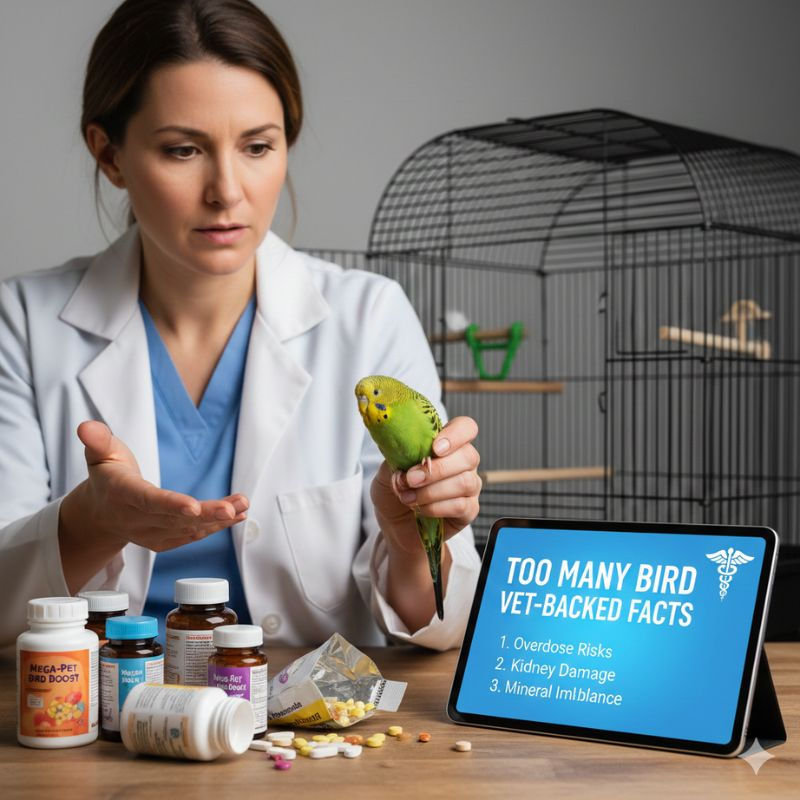Different Types of Pet Birds That Can Learn to Talk and Entertain You
- petperchlove
- Apr 9, 2025
- 4 min read

Birds are more than just beautiful creatures — some can mimic human speech, sing melodies, and even respond to your emotions. If you're thinking about adding a talkative companion to your home, it’s important to understand the different types of pet birds that have the talent to talk and entertain.
In this blog, we’ll explore some of the most popular talking birds, what makes them so engaging, and how to care for them properly. We’ll also guide you on the right pet bird food, birds food options, and essential bird supplies to keep them happy and healthy.
Why Do Some Birds Talk?
Talking birds don’t actually speak human language, but they mimic the sounds and words they hear regularly. Birds are social creatures, and some species have a stronger need to bond with their human companions. Mimicking speech is part of that bonding behavior.
Birds that are raised in engaging, interactive environments tend to learn faster and more clearly.
Top Talking Pet Birds That Will Keep You Entertained
1. African Grey Parrot
African Greys are often referred to as the "Einsteins of the bird world." With a vocabulary of up to 1,000 words, they not only mimic speech but can also understand context and tone.
Pros: Extremely intelligent, strong mimicking abilities
Cons: High mental stimulation needs, long lifespan (up to 60 years)
2. Budgerigar (Budgie)
Budgies are small, colorful birds that surprise many with their ability to mimic speech. They're great for beginners and can learn dozens of words with consistent training.
Pros: Affordable, social, easy to train
Cons: Not as clear as larger parrots, shorter lifespan
3. Amazon Parrots
Known for their vibrant colors and outgoing personalities, Amazon Parrots are skilled talkers and love to sing.
Pros: Fun-loving, strong bond with owners
Cons: Can be loud, need large cages and attention
4. Indian Ringneck Parakeet
These sleek birds have a charming voice and a talent for repeating phrases. They're also very playful and bond deeply with one or two people.
Pros: Elegant, interactive, good vocabulary
Cons: Requires daily interaction to avoid boredom
5. Quaker Parrot (Monk Parakeet)
Quaker parrots are quick learners with a comical personality. They're small but mighty when it comes to talking abilities.
Pros: Great for apartments, talkative, friendly
Cons: Illegal to own in some states (check your local laws)
Feeding Talking Birds: What to Know About Birds Food
Feeding your bird the right nutrition is crucial to its cognitive function and speech development. Just like us, a healthy brain comes from a balanced diet. Different birds food options are available, but species-specific pet bird food is best.
Look for high-quality pet bird food with:
Seeds and grains
Dried fruits and vegetables
Omega-3 fatty acids
Natural vitamins and minerals
Avoid: Artificial coloring, too much sunflower seed, or human junk food like chips or chocolate.
Providing fresh water daily and occasional treats like millet sprays or cuttlebone for calcium is also important.
Must-Have Bird Supplies for Talking Birds
To raise a healthy, talkative pet bird, you’ll need more than just a cage. Here's a list of essential bird supplies:
Spacious cage with horizontal bars (for climbing)
Perches of varying sizes
Talking toys and mirrors (encourage mimicry)
Foraging toys to stimulate their mind
Cage liners for easy cleaning
Bowls for food and water
Cage cover (for a proper sleep cycle)
A radio or soft background noise when you're away
Enrichment is critical — the more mentally stimulated your bird is, the more likely it is to mimic sounds and stay healthy.
Tips for Training Your Bird to Talk
Start Early: Young birds are more adaptable and easier to train.
Be Consistent: Repeat words clearly and regularly.
Use Rewards: Offer treats or praise when your bird tries to mimic you.
Limit Background Noise: It helps the bird focus on your voice.
Use the Same Words: Stick to specific words or phrases to avoid confusion.
Talk Daily: Make it part of your bonding routine.
Do All Talking Birds Speak Equally Well?
Not exactly. While many species can learn to talk, not every individual bird will. Just like humans, each bird has a unique personality and learning pace. Some will pick up words easily; others may never say more than a whistle. Patience and consistent interaction are key.
Final Thoughts
If you're fascinated by the idea of a feathery friend that can talk back, these different types of pet birds offer plenty of personality, entertainment, and companionship. Whether you're considering a charismatic African Grey or a chirpy Budgie, remember to support them with a proper diet of nutritious birds food, dedicated pet bird food, and essential bird supplies to ensure they live a long, happy, and chatty life.
FAQs
Q1. What is the best bird for first-time owners that can talk?
A: Budgies and Quaker Parrots are great choices for beginners. They're small, affordable, and relatively easy to care for.
Q2. How long does it take for a bird to learn to talk?
A: It can take anywhere from a few weeks to several months. Consistent training and interaction speed up the process.
Q3. Can all parrots talk?
A: Not all parrots talk, but many species like African Greys, Amazons, and Indian Ringnecks have strong talking abilities. Individual personality plays a big role.
Q4. What is the best pet bird food for talking birds?
A: A mix of seeds, pellets, dried fruits, and vegetables. Look for food blends labeled for parrots or specific bird types and ensure they are high in nutrients.
Q5. Do I need to buy special bird supplies for training?
A: Yes. Toys that stimulate your bird’s brain, mirrors, voice recorders, and healthy treats are all helpful in encouraging talking behavior.



Comments